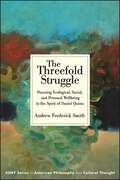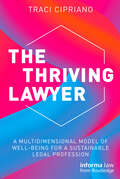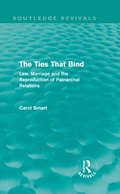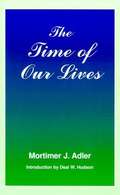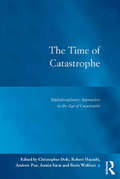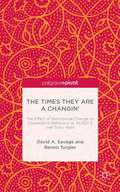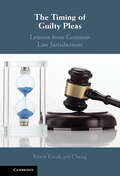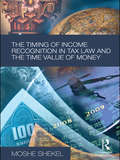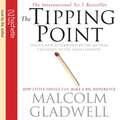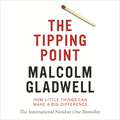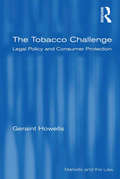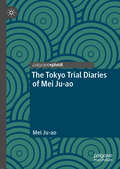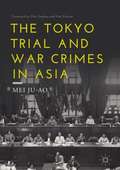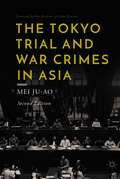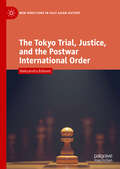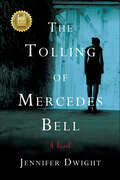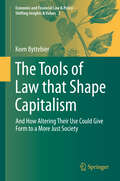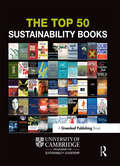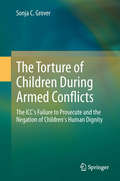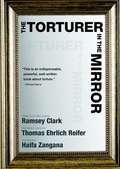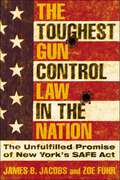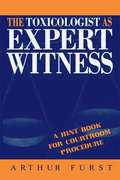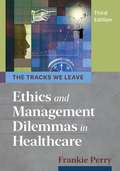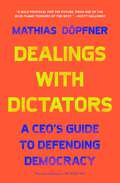- Table View
- List View
The Threefold Struggle: Pursuing Ecological, Social, and Personal Wellbeing in the Spirit of Daniel Quinn (SUNY series in American Philosophy and Cultural Thought)
by Andrew Frederick SmithWe members of settler colonial culture—the latest form of what novelist and cultural critic Daniel Quinn calls Taker culture—are constrained by myriad institutions that leave us with little choice but to engage in practices that are profoundly damaging to the planet, to others, and to ourselves. Our path to living otherwise, Andrew Frederick Smith argues, lies in the threefold struggle, which is inspired by Quinn's focus on the interweaving roots of ecological, social, and personal wellbeing. These three forms of wellbeing are co-implicated. We cannot enjoy one without equally enjoying the others; they are a package deal. As such, what works for people individually and collectively works for the planet, and vice versa. Reclaiming our lives and revitalizing our human and more-than-human communities are salient acts of resistance against Taker culture. They offer means of escape from our cultural captivity and an opportunity for full-spectrum wellbeing.
The Thriving Lawyer: A Multidimensional Model of Well-Being for a Sustainable Legal Profession
by Traci CiprianoThe Thriving Lawyer: A Multidimensional Model of Well-Being for a Sustainable Legal Profession is based on an innovative model, grounded in science. This book serves as a resource for promoting well-being and culture-change in the legal community by educating about pertinent issues impacting lawyers, and how to address them. It is a roadmap, highlighting the many over-arching and inter-connected aspects of well-being, and enabling readers to identify and target the issues most relevant to their unique situations. Along with practical strategies, the book provides a big-picture framework, illustrating how the many intersecting individual and organizational factors which influence well-being are all related, yet separate and distinct. The framework provides a foundation for creating change, and where you focus first will depend on the needs, the situation, and any unique challenges faced by you or your organization. The Thriving Lawyer explains why, in addition to self-care, change is needed on the organizational level in terms of workplace culture and policies, as well as normalizing self-care and eradicating stigma. This book is intended to benefit individual lawyers, their organizations, and professionals who support them, by educating, motivating, and promoting self-care and healthy work environments.
The Ties That Bind: Law, Marriage and the Reproduction of Patriarchal Relations (Routledge Revivals)
by Carol SmartFirst published in 1984, this book made an important and timely contribution to the development of the idea that the law is a major source of women’s oppression. Based on research of the theory and practice of family law, it examines the way in which private law operates to sustain, reproduce and reinforce the dependence of women in the most private of spheres, namely marriage. The author focuses on the point of break down or divorce, where the economic vulnerability of women caused by marriage and the sexual division of labour is most clearly expressed. She points to the way in which the law, while mitigating the worst excesses of men’s power over women in marriage, has consistently failed to tackle the economic structure of marriage and women’s fundamental material vulnerability inside the family. She confronts various myths on divorce legislation in Britain and discusses alternative feminist proposals for tackling the problems caused by women’s economic dependence in marriage. Although Smart writes in 1984, many of the issues she discusses retain their significance in today’s society.
The Time Of Our Lives: The Ethics Of Common Sense
by Mortimer J. Adler Deal HudsonIs it a good time to be alive? Is ours a good society to be alive in? Is it possible to have a good life in our time? And finally, does a good life consist of having a good time? Are happiness and "a good life" interchangeable? These are the questions that Mortimer Adler addresses himself to. The heart of the book lies in its conception of the good life for man, which provides the standard for measuring a century, a society, or a culture: for upon that turns the meaning of each man's primary moral right - his right to the pursuit of happiness. The moral philosophy that Dr. Adler expounds in terms of this conception he calls "the ethics of common sense," because it is as a defense and development of the common-sense answer to the question "can I really make a good life for myself?"
The Time of Catastrophe: Multidisciplinary Approaches to the Age of Catastrophe (Law, Justice and Power)
by Austin Sarat Christopher Dole Robert Hayashi Andrew PoeIf catastrophes are, by definition, exceptional events of such magnitude that worlds and lives are dramatically overturned, the question of timing would pose a seemingly straightforward, if not redundant question. The Time of Catastrophe demonstrates the analytic productiveness of this question, arguing that there is much to be gained by interrogating the temporal conceits of conventional understandings of catastrophe and the catastrophic. Bringing together a distinguished, interdisciplinary group of scholars, the book develops a critical language for examining 'catastrophic time', recognizing the central importance of, and offering a set of frameworks for, examining the alluring and elusive qualities of catastrophe. Framed around the ideas of Agamben, Kant and Benjamin, and drawing on philosophy, history, law, political science, anthropology and the arts, this volume seeks to demonstrate how the question of 'catastrophic time' is in fact a question about something much more than the frequency of disasters in our so-called 'Age of Catastrophe'.
The Times They Are A Changin’: The Effect of Institutional Change on Cooperative Behaviour at 26,000 ft over Sixty Years
by Benno Torgler David A. SavageThis narrative and empirical analysis investigates Hilary's claim that in his day they would not have left a man behind to die. The authors examine over 60 years of Himalayan climbing data and stories in order to test the changes in cooperation in this extreme life and death environment.
The Timing of Guilty Pleas: Lessons from Common Law Jurisdictions
by Kevin ChengWhile guilty pleas are the primary mode of criminal case dispositions across different legal jurisdictions, this topic remains an understudied area. The assumption is that defendants are 'playing the system' and that a sliding scale of sentence discounts is necessary to encourage early guilty pleas, which offer utilitarian benefits of efficiency. These assumptions lack a solid empirical foundation. This book offers a comprehensive investigation of how the timing of guilty pleas affects various facets of the criminal process, from the factors that affect this timing, to the effects that the sliding scale of sentence discounts have on sentences and public opinions about them. It also draws comparisons between Western and Asian legal systems, specifically those of England and Wales and Hong Kong. This book is addressed to scholars, legal practitioners, policymakers and those interested in criminal justice, socio-legal studies and empirical legal research.
The Timing of Income Recognition in Tax Law and the Time Value of Money
by Moshe ShekelTime itself creates advantages and disadvantages in the field of taxation. The timing of the recognition of income and expenses for tax purposes has two main implications: firstly, for the timing of the collection of tax, and secondly, for the question of quantification, i.e., how to ensure that the difference between the timing of the recognition of income or expenses, as opposed to the respective dates on which the amounts are actually received or paid, does not distort the determination of the amount of chargeable income. The time component is a weapon in the confrontation between the opposing motivations of the taxpayers and the tax authorities. In any given fiscal year, taxpayers seek to present a minimal picture of their chargeable income, by "deferring" the recognition of income or "advancing" the recognition of expenses. As opposed to this, the tax authorities adopt the opposite strategy: maximizing taxable "profit" in any given year. This book critically examines the various approaches that have been adopted in the tax systems in the UK, the US and Israel in relation to the timing of income recognition and expenses for tax purposes. It suggests an innovative tax model that identifies the advantages that arise to the taxpayer as a result of the differences between the timing of the recognition of income and expenses, and the timing of the receipt of the revenue or the payment of a liability, and taxes only that advantage.
The Tipping Point: How Little Things Can Make a Big Difference
by Malcolm Gladwell'A wonderful page-turner about a fascinating idea that should affect the way every thinking person thinks about the world around him' Michael LewisIn this brilliant and original book, Malcolm Gladwell explains and analyses the 'tipping point', that magic moment when ideas, trends and social behaviour cross a threshold, tip and spread like wildfire. Taking a look behind the surface of many familiar occurrences in our everyday world, Gladwell explains the fascinating social dynamics that cause rapid change.'Hip and hopeful, THE TIPPING POINT is like the idea it describes: concise, elegant but packed with social power. A book for anyone who cares about how society works and how we can make it better' George Stephanopoulos
The Tipping Point: How Little Things Can Make a Big Difference
by Malcolm Gladwell'A wonderful page-turner about a fascinating idea that should affect the way every thinking person thinks about the world around him' Michael LewisIn this brilliant and original book, Malcolm Gladwell explains and analyses the 'tipping point', that magic moment when ideas, trends and social behaviour cross a threshold, tip and spread like wildfire. Taking a look behind the surface of many familiar occurrences in our everyday world, Gladwell explains the fascinating social dynamics that cause rapid change.'Hip and hopeful, THE TIPPING POINT is like the idea it describes: concise, elegant but packed with social power. A book for anyone who cares about how society works and how we can make it better' George Stephanopoulos
The Tobacco Challenge: Legal Policy and Consumer Protection (Markets And The Law Ser.)
by Geraint HowellsAddressing three central questions of legal policy, this is an interesting and comprehensive analysis of the need to control and regulate tobacco consumption. The core issues of the book are litigation vs. regulation with a comparative analysis of the US and European approaches; the challenge to regulate tobacco as a lawful product within constitutional limits to promote the reduction of risks to health and the extent to which consumers should be entrusted with information to make their own informed choices. Suggesting dialogue and transparency in policy development, this book covers advertising, psychology, ethics, economics and health in addition to the central debate about the litigation and regulation of tobacco and the role of consumer protection law and private law.
The Tokyo Trial Diaries of Mei Ju-ao
by Mei Ju-aoWritten by Chinese Jurist Mei Ju-ao, this significant book considers both the process and the impact of the International Military Tribunal for the Far East, otherwise known as the Tokyo Trial, which was convened in 1946 to try political military leaders accused of involvement in war crimes. Offering valuable research material on the establishment of the tribunal, it examines the background to the establishment of the International Military Tribunal and the lessons learned from earlier trials of World War One War Criminals. Written from the perspective of a Chinese prosecutor who was both jurist and witness, this unique text engages with the Tokyo Trial from an interdisciplinary perspective bringing in both international law and international relations, measuring over 7 decades later the significance and ongoing legacy of the Tokyo Trial for contemporary international criminal justice in Asia and beyond..
The Tokyo Trial and War Crimes in Asia
by Mei Ju-AoThis book examines the process and the impact of the International Military Tribunal for the Far East, otherwise known as the Tokyo Trial, which was convened in 1946 to try political military leaders accused of involvement in war crimes. Offering valuable research material on the establishment of the tribunal, it studies the background to the establishment of the International Military Tribunal and the lessons learned from earlier trials of World War One War Criminals. It addresses the IMTFE charter and records the establishment and development of the Tokyo Trial war crime principles, the confirmation of the Class A War Criminal list and the subsequent arrests and interrogations. It revisits the organization of the judges, the responsibilities of the prosecution and defense teams as well as the US representation in the defence. Offering the perspective of a Chinese prosecutor who was both jurist and witness, this unique text engages with the Tokyo Trial from an interdisciplinary perspective, bringing in both international law and international relations, and over seven decades later measures the significance and ongoing legacy of the Tokyo Trial for contemporary international criminal justice in Asia and beyond.
The Tokyo Trial and War Crimes in Asia
by Mei Ju-aoThe book examines the process and the impact of the International Military Tribunal for the Far East (IMTFE), otherwise known as the Tokyo Trial, which was convened in 1946 to try the Japanese leaders accused of committing war crimes during World War II. Offering valuable research materials, it studies the lessons learned from the failed attempt after World War I, and the background and establishment of the IMTFE. It elaborates on the Charter, the Indictment, the Proceeding Records, and the Judgment of the IMTFE, with an emphasis on principles of international law and other legal questions, often with reference to the Nuremberg Trial. It also discusses the structure and different parts of the court organization, the selection and prosecution of Class-A war criminals, and the trial procedures especially those relating to evidence. The author’s personal experience and his criticism of certain aspects of the Tokyo Trial make it most insightful for the reader. From the perspective of a Chinese judge, this unique text brings in the dimensions of both international law and international relations, and allows us to measure the significance and legacy of the Tokyo Trial for contemporary international criminal justice. The author’s manuscript of this book was written in Chinese in the mid-1960s as part of a larger project, and was initially published in 1988. This is the first time that this book has been translated into English.
The Tokyo Trial, Justice, and the Postwar International Order (New Directions in East Asian History)
by Aleksandra BabovicFully utilizing the latest archival material, this book provides a comprehensive, multi-dimensional and nuanced understanding of the Tokyo Tribunal by delving into the temporal aspects that extended the relevance and reverberations of the Tribunal beyond its end in 1948. With this as a backdrop, this book contributes to the study of Japanese postwar diplomacy. It shows the Tokyo Tribunal is still very much an experiment in progress, and how the process itself has helped Japan to quickly shed its imperial past and remain ambiguous as to its war responsibilities. From a wider vantage point, this book augments the existing scholarship of international criminal law and justice, offering a clear framework as to the limits of what international criminal tribunals can accomplish and offers a must-read for academics and students as well as for practitioners, journalists and policymakers interested in international criminal law and US-Japanese diplomatic history,
The Tolling of Mercedes Bell: A Novel
by Jennifer Dwight"Full of surprises with impressive twists…” —Suspense Magazine "The Tolling of Mercedes Bell is an unforgettable page-turner—a must read by all!” —San Francisco Book Review Recently widowed and adapting to the challenges of single motherhood, Mercedes Bell is a paralegal at Crenshaw, Slayne & McDonough when she meets Jack Soutane, a dashing San Francisco lawyer who has recently begun leasing office space from the firm. It’s the 1980s. The crack epidemic, homelessness, and AIDS explode on the scene, Jack’s law practice booms—and the Crenshaw firm eagerly shares his bounty. Meanwhile, despite all the warning signs, Mercedes falls under Jack’s spell. When calamity strikes and Jack succumbs to his own dark surprise, Mercedes finds herself in a race to survive and to protect her daughter. In order to do so, she must make sense of wildly inconsistent information—and face the truths that emerge. Compelling and full of suspense, The Tolling of Mercedes Bell is a story about honesty in the face of deception, courage in the pursuit of happiness, and the unexpected places that quest can lead.
The Tools of Argument: How the Best Lawyers Think, Argue, and Win
by Joel P. TrachtmanJoel Trachtman's book presents in plain and lucid terms the powerful tools of argument that have been honed through the ages in the discipline of law. If you are a law student or new lawyer, a business professional or a government official, this book will boost your analytical thinking, your foundational legal knowledge, and your confidence as you win arguments for your clients, your organizations or yourself.
The Tools of Law that Shape Capitalism: And How Altering Their Use Could Give Form to a More Just Society (Economic and Financial Law & Policy – Shifting Insights & Values #3)
by Koen ByttebierThe book provides a critical analysis of the legal mechanisms that help shape the capitalist system, and also makes proposals for deploying these tools in a different manner.Although often disguised in difficult legal jargon, in reality the main legal building blocks of the prevailing capitalist socio-economic system are simple, the most important being: (1) money; (2) the company form and (3) (neo)liberal state organization aimed at making markets as free as possible for the entrepreneurial sector. Having been used to create the socio-economic order over 2-3 centuries, the legal systems that helped shape capitalist societies around the globe have also contributed to a variety of fundamental problems that remain unaddressed by the capitalist system itself, such as ever-mounting public and private debt, pollution and climate change, an increasing polarization between rich and poor and a globally unjust fiscal order. By proposing alternative uses for the tools of law that shape capitalism, the book also makes proposals for dealing with these matters.
The Top 50 Sustainability Books
by Wayne VisserThis unique title draws together in one volume some of the best thinking to date on the pressing social and environmental challenges we face as a society. These are the Top 50 Sustainability Books as voted for by the University of Cambridge Programme for Sustainability Leadership's alumni network of over 3,000 senior leaders from around the world. In addition to profiles of all 50 titles, many of the authors share their most recent reflections on the state of the world and the ongoing attempts by business, government and civil society to create a more sustainable future. Many of these authors have become household names in the environmental, social and economic justice movements – from Rachel Carson, Ralph Nader and E.F. Schumacher to Vandana Shiva, Muhammad Yunus and Al Gore. Others, such as Aldo Leopold, Thomas Berry and Manfred Max-Neef, are relatively undiscovered gems, whose work should be much more widely known. By featuring these and other seminal thinkers, The Top 50 Sustainability Books distils a remarkable collective intelligence – one that provides devastating evidence of the problems we face as a global society, yet also inspiring examples of innovative solutions; it explores our deepest fears and our highest hopes for the future. It is a must-read for anyone who wants to tap into the wisdom of our age.
The Torture of Children During Armed Conflicts
by Sonja C. GroverThis book examines selected legal complexities of the notion of torture and the issue of the proper foundation for legally characterizing certain acts as torture, especially when children are the targeted victims of torture. ICC case law is used to highlight the International Criminal Court's reluctance in practice to prosecute as a separable offence the crime of torture as set out in one or more of the relevant provisions of the Rome Statute where children are the particularized targets as part of a common plan during armed conflict. Also addressed is the failure of the ICC to consider that the young age of the victims of torture (i. e. children) should be an aggravating factor taken into account in determining the ICC sentence for those convicted of the torture of civilians, including children, in the context of armed conflict as part of a common plan. The six UN-designated grave crimes against children (including child soldiering for State or non-State forces perpetrating mass atrocities, and sexual violence perpetrated on a systematic and widespread basis against children including child soldiers), it is argued, are also instances of the torture of children as part of a common plan such that separate charges of torture are legally supportable (along with the other charges relating to additional Rome Statute offences involved in such circumstances). Useful legal perspectives on the issue of the torture of children in its various manifestations gleaned from the case law of other international judicial forums such as the Inter-American Court of Human Rights and the ICTY are also examined.
The Torturer in the Mirror
by Haifa Zangana Ramsey Clark Thomas Ehrlich ReiferBefore the US invasion of Iraq, before the American public saw the infamous photos from Abu Ghraib, the CIA went to the White House with a question: What, according to the Constitution, was the line separating interrogation from torture--and could that line be moved? The White House lawyers' answer--in the form of legal documents later known as the "Torture Memos"--became the US's justification for engaging in torture. The Torturer in the Mirror shows us how when one of us tortures, we are all implicated in the crime. In three uncompromising essays, Iraqi dissident Haifa Zangana, former US Attorney General Ramsey Clark, and professor of sociology Thomas Ehrlich Reifer teach us how physically and psychologically insidious torture is, how deep a mark it leaves on both its victims and its practitioners, and how necessary it is for us as a society to hold torturers accountable.
The Toughest Gun Control Law in the Nation: The Unfulfilled Promise of New York's SAFE Act
by James B. Jacobs Zoe FuhrA comprehensive assessment of real gun reform legislation with recommendations for better design, implementation and enforcementA month after the Sandy Hook Elementary School shooting, New York State passed, with record speed, the first and most comprehensive state post-Sandy Hook gun control law. In The Toughest Gun Control Law in the Nation, James B. Jacobs and Zoe Fuhr ask whether the 2013 SAFE Act —hailed by Governor Andrew Cuomo as “the nation’s toughest gun control law” – has lived up to its promise. Jacobs and Fuhr illuminate the gap between gun control on the books and gun control in action. They argue that, to be effective, gun controls must be capable of implementation and enforcement. This requires realistic design, administrative and enforcement capacity and commitment and ongoing political and fiscal support. They show that while the SAFE Act was good symbolic politics, most of its provisions were not effectively implemented or, if implemented, not enforced. Gun control in a society awash with guns poses an immense regulatory challenge. The Toughest Gun Control Law in the Nation takes a tough-minded look at the technological, administrative, fiscal and local political impediments to effectively keeping guns out of the hands of dangerous persons and eliminating some types of guns altogether.
The Toxicologist as Expert Witness: A Hint Book for Courtroom Procedure
by Arthur FurstAs the world becomes more complex, a greater percentage of the present litigation is based upon very technical subjects. More and more chemicals are being introduced into our daily lives, without ever having been tested for possible side-effects. Consequently, product liability is increasing, and more and more often the toxicologist is being called
The Tracks We Leave: Ethics and Management Dilemmas in Healthcare
by Frankie PerryThrough a series of essays and cases based on real-life experiences, this book explores the inter relatedness of ethics and management and helps healthcare professionals at all levels of an organization overcome barriers to ethical decisions.
The Trade Trap: How To Stop Doing Business with Dictators
by Mathias DöpfnerGlobal business leader Mathias Döpfner offers a &“compelling&” (Gideon Rachman, chief foreign affairs columnist for Financial Times) and revolutionary road map to reshape global trade, strengthen our democracy, and safeguard our freedoms.Freedom is on the decline around the world. Autocrats in Europe, Asia, and the Middle East are undermining our open societies, human rights, and the rule of law. The Russian invasion of Ukraine was a wake-up call for the West, but the biggest threat remains China. For two generations, Americans and Europeans have believed that change will come through trade, but instead of dictatorships becoming more like Western democracies, unfettered free trade has strengthened our enemies and undermined our countries. We are caught in a trade trap, faced with the decision to choose either opportunism and submission or opposition and emancipation. In Dealing with Dictators, one of the world&’s most powerful business leaders traces the rise and costs of Western dependency on China and Russia. And he suggests a radical new approach to free trade: The establishment of a new values-based alliance of democracies. Membership is based on the adherence to three very simple criteria: the rule of law, human rights, and sustainability targets. Countries that comply with these criteria can engage in tariff-free trade with others. Those who don&’t will pay prohibitive tariffs. Sharing the author&’s encounters with major global figures including Vladimir Putin, Recep Tayyip Erdogan, George W. Bush, Angela Merkel, Jack Ma, and more, Dealing with Dictators offers personal insight into the dangerous consequences of doing business with autocrats along with a bold proposal for a values-based trade policy.
